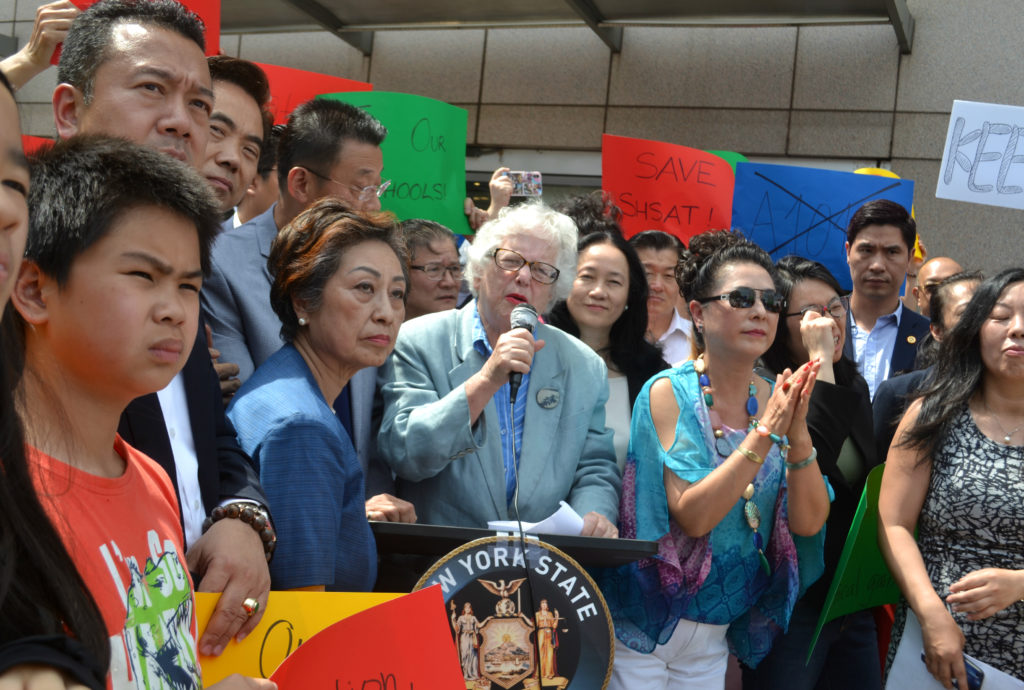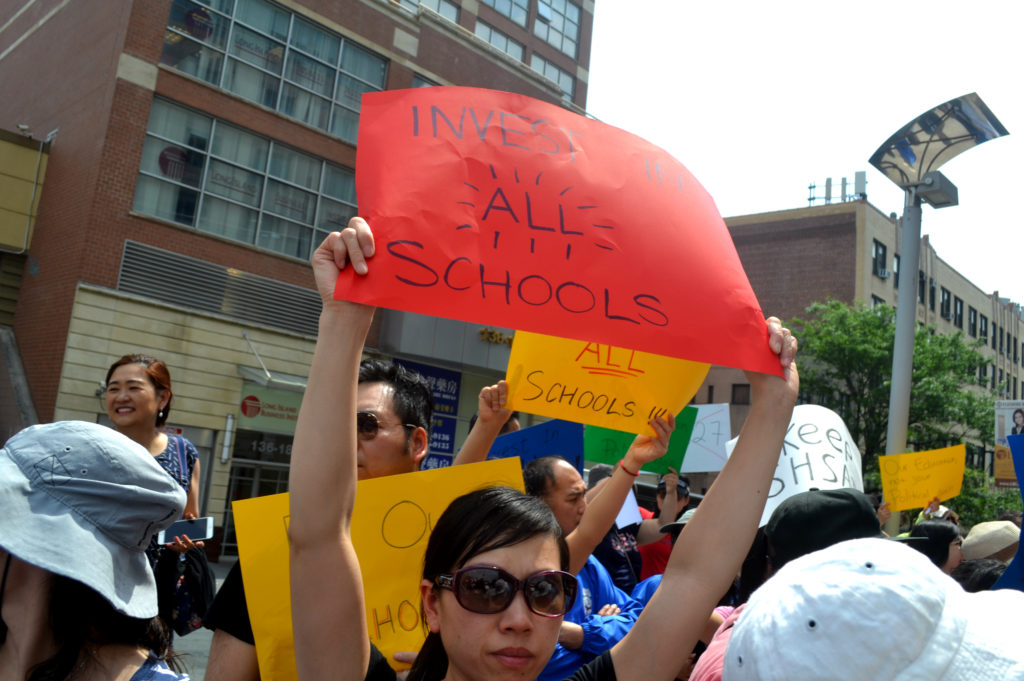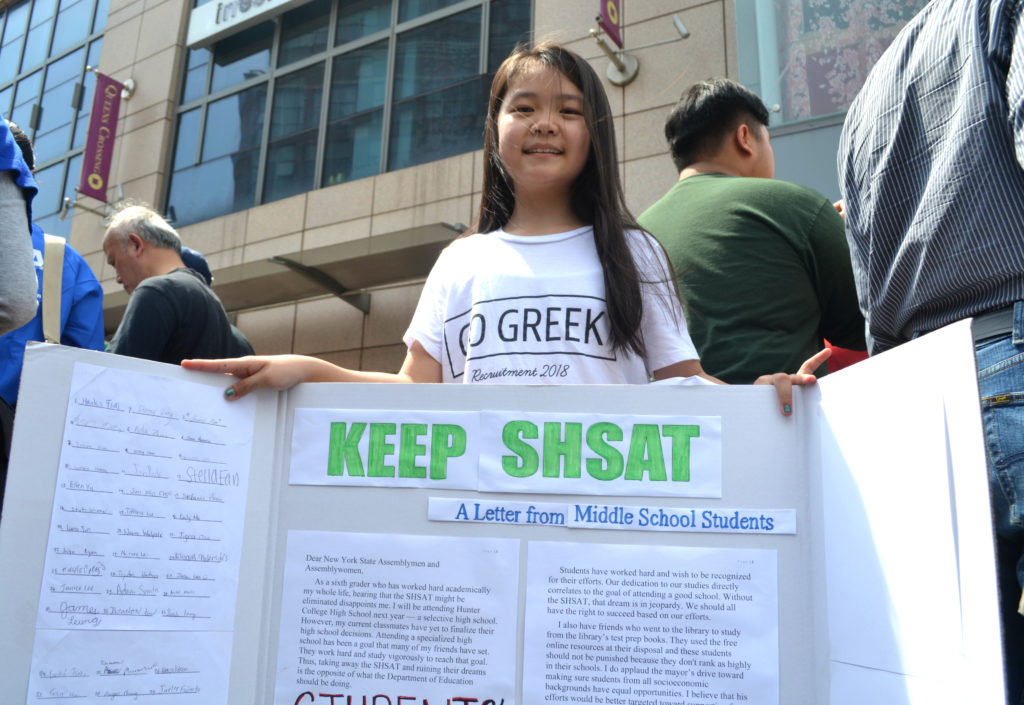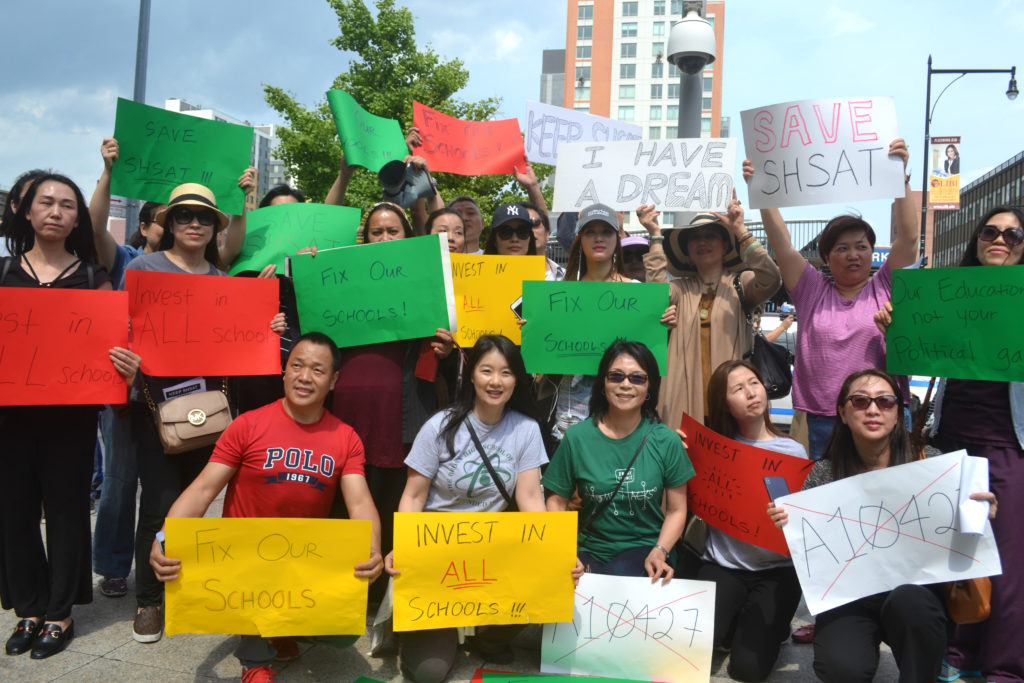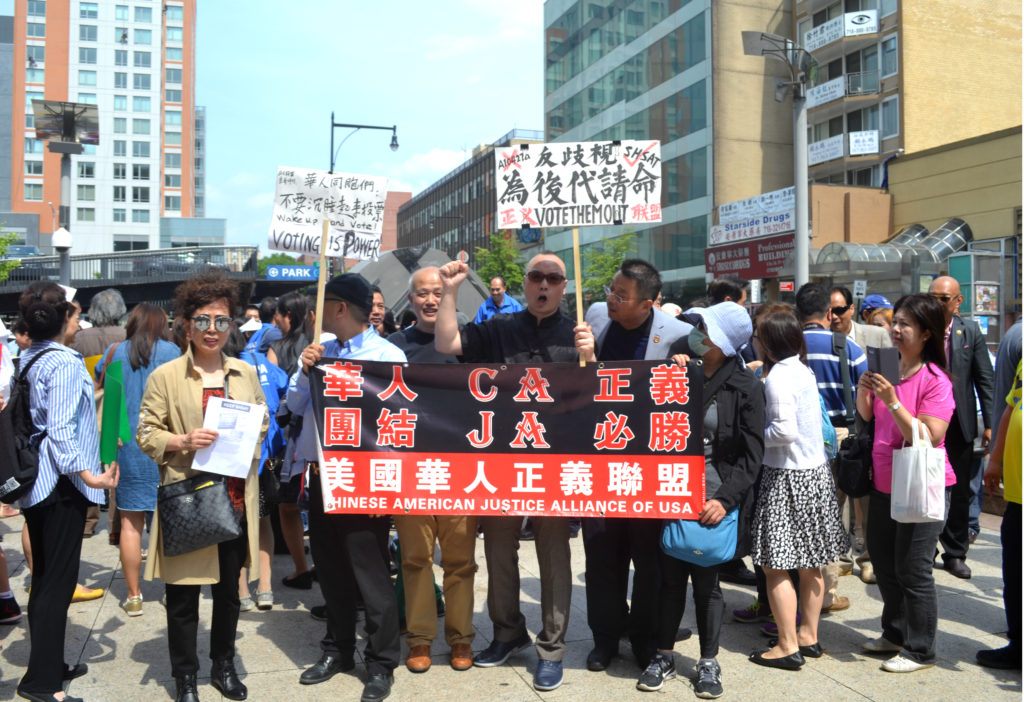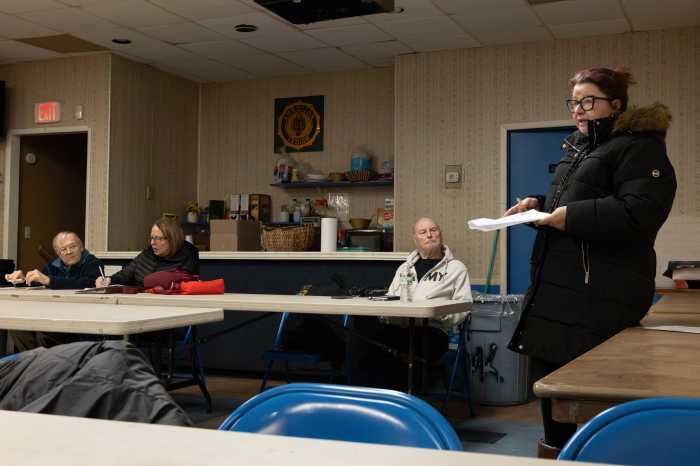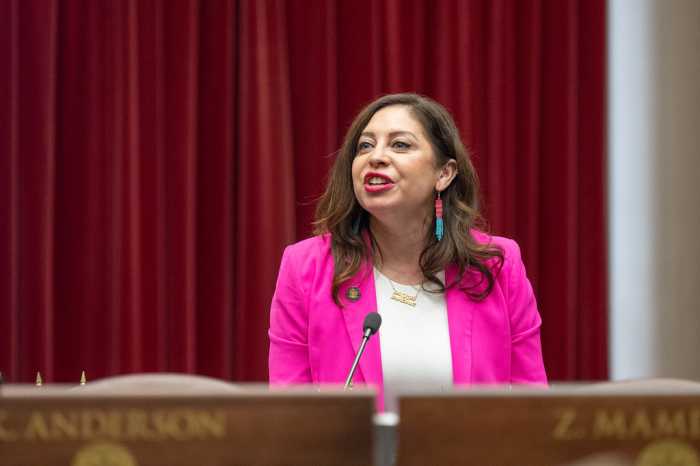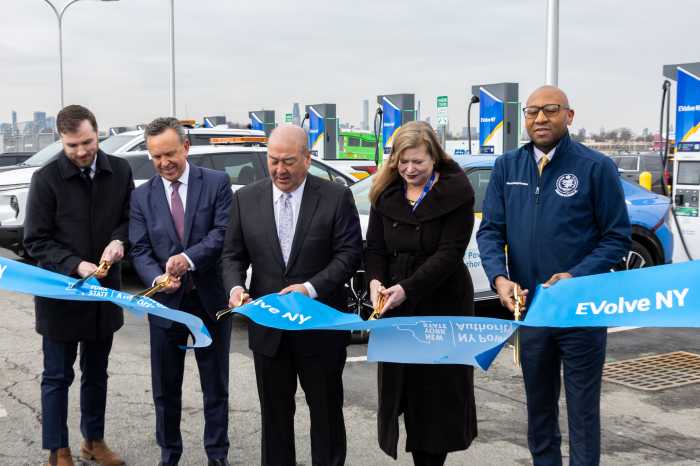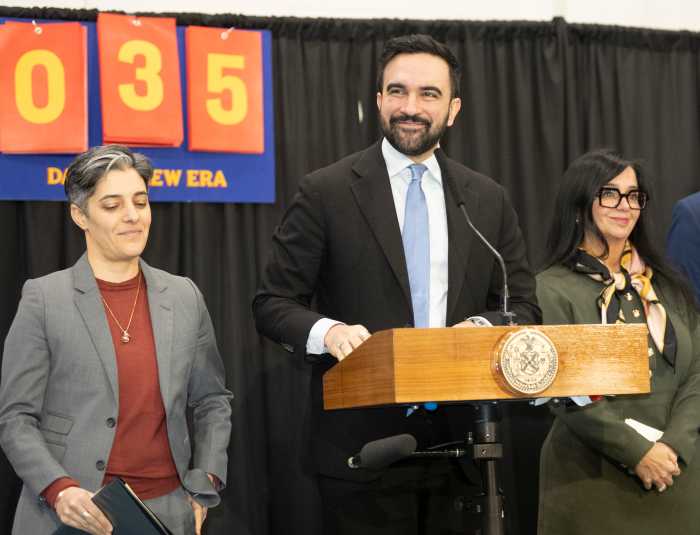Dozens of concerned parents, students and residents met in Flushing last Friday to rail against the city’s controversial move to eliminate admissions testing to New York City’s specialized public high schools.
“Keep the test” was the rallying cry from the group gathered at Queens Crossing at the corner of 138th Street and 39th Avenue on June 8. The demonstration was organized in the wake of Mayor Bill de Blasio and Department of Education Schools Chancellor Richard Carranza’s June 3 announcement they would seek to eliminate the Specialized High School Admission Test (SHSAT).
Currently, prospective students for the city’s eight specialized public high schools must take the SHSAT, which is the sole exam required for entry. The mayor’s plan, which would eliminate the test entirely, would reserve 45 percent of offers for the 5,000 available seats for black and Hispanic students and base admissions on elementary school grade performance.
The June 8 rally was organized by state Senator Toby Ann Stavisky, who called the mayor and chancellor’s move “disgraceful, dangerous and divisive.”
“To the mayor and the chancellor, I say, ‘Keep the test,'” Stavisky said.
The elimination of the SHSAT would require state legislation. On June 7, State Assembly Speaker Carl Heastie announced that lawmakers would not be voting on the bill (A.10427-A) during this session, which is scheduled to end on June 20.
Assemblyman Ron Kim, who serves on the education committee, voted “no” on the motion to pass the legislation.
“We cannot achieve diversity when we are pitting entire communities of people against each other. That is not what New York City is about,” Kim said.
A number of local leaders who spoke said the move unfairly targets Asian Americans, who currently make up 62 percent of students at the specialized schools. Some made reference to the newly appointed schools chancellor’s recent comments on Fox 5 New York.
“I just don’t buy into the narrative that any one ethnic group owns admission to these schools,” Carranza said in response to the claims on June 5.
“Asian Americans are not privileged; nor do we believe we ‘own the classrooms,'” executive director of CUNY’s Asian American/Asian Research Institute Joyce Moy said on June 8. “We support diversity and quality education. Our community has been historically excluded, marginalized and scapegoated. We have had to fight for every seat, at every table. We cannot allow seats to be arbitrarily taken from us when we have earned them.”
Caroline Xiong, a student at Little Neck’s M.S. 67 who will attend Hunter College High School next year, said she took eight hours of classes a week over last summer to prepare for the school’s entrance exam. She said taking away the SHSAT will impact fellow hardworking students who have prepared to take the exam for years.
“It was a really stressful process and I was really happy that I got in and my hard work payed off,” she said. “When you work hard, you want to be recognized for it. To get rid of [the test], it makes the people who worked hard their whole life kind of feel like it was all a waste.”
At the rally, Xiong held up a poster board displaying a petition she wrote to keep the test. Approximately 60 classmates signed onto the petition, which is addressed to Assembly members.
“Our dedication to our studies directly correlate to the goal of attending a good school,” the petition reads. “Without the SHSAT, that dream is in jeopardy. We should all have the right to succeed based on our efforts.”
The eight specialized high schools that base their admissions solely on SHSAT scores include the Bronx High School of Science, Queens High School for the Sciences at York College and Stuyvesant High School.
A total of 10 percent of specialized high school students are black or Latino, compared to nearly 70 percent citywide, according to the mayor’s office.
“There are talented students all across the five boroughs, but for far too long our specialized high schools have failed to reflect the diversity of our city,” Mayor Bill de Blasio said in a statement released on June 3. “We cannot let this injustice continue. By giving a wider, more diverse pool of our best students an equal shot at admissions, we will make these schools stronger and our city fairer.”


